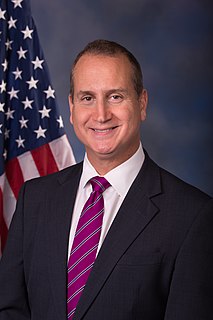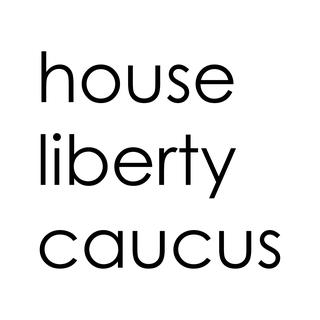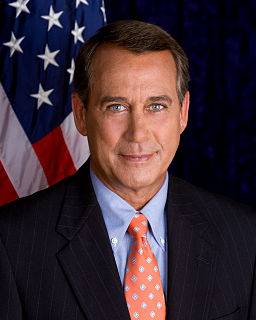This article needs to be updated.(February 2016) |
Congressional Czech Caucus was inaugurated on February 27, 2008 in Washington, D.C.
This article needs to be updated.(February 2016) |
Congressional Czech Caucus was inaugurated on February 27, 2008 in Washington, D.C.
(List in progress, March 4, 2008)
(List in progress, April 10, 2008)

Lincoln Rafael Díaz-Balart is a Cuban-American attorney and politician. He was the U.S. Representative for Florida's 21st congressional district from 1993 to 2011. He is a member of the Republican Party. He previously served in the Florida House of Representatives and the Florida Senate. He retired from Congress in 2011 and his younger brother, Mario Díaz-Balart, who had previously represented Florida's 25th congressional district, succeeded him. He is currently chairman of the Congressional Hispanic Leadership Institute. After leaving Congress, he started a law practice and a consulting firm, both based in Miami, Florida.

The One Hundred Seventh United States Congress was a meeting of the legislative branch of the United States federal government, composed of the United States Senate and the United States House of Representatives. It met in Washington, D.C. from January 3, 2001 to January 3, 2003, during the final weeks of the Clinton presidency and the first two years of the George W. Bush presidency. The apportionment of seats in this House of Representatives was based on the Twenty-first Census of the United States in 1990. The House of Representatives had a Republican majority, and the Senate switched majorities from Democratic to Republican and back to Democratic. By the end of term, Republicans had regained the majority in the Senate, but since the body was out of session reorganization was delayed till the next Congress.

Mario Rafael Díaz-Balart Caballero is a Republican U.S. Representative for Florida's 25th congressional district. He was elected in 2002, and his current district includes much of southwestern Miami-Dade County, including the city of Hialeah, and much of the northern portion of the Everglades.

The 1996 United States House of Representatives elections was an election for the U.S. House of Representatives on November 5, 1996, which coincided with the re-election of President Bill Clinton. Democrats won by almost 60,000 votes (0.07%) and gained a net of two seats from the Republicans, but the Republicans retained an overall majority of seats in the House for the first time since 1928.

The 2006 United States House of Representatives elections were held on November 7, 2006, to elect members to the United States House of Representatives. It took place in the middle of President George W. Bush's second term in office. All 435 seats of the House were up for election. Those elected served in the 110th United States Congress from January 3, 2007, until January 3, 2009. The incumbent majority party, the Republicans, had won majorities in the House consecutively since 1994, and were defeated by the Democrats who won a majority in the chamber, ending 12 years of Republican control in the House.
The Cuban-American lobby describes those various groups of Cuban exiles in the United States and their descendants who have historically influenced the United States' policy toward Cuba. In general usage this refers to anti-Castro groups.

The Republican Main Street Partnership is a group of moderately conservative members of the United States Republican Party within the United States Congress, somewhat similar to the Blue Dog Democrats.

The Congressional Hispanic Conference (CHC) is a Republican sponsored caucus in the United States Congress. Currently with six members, the CHC was formed in 2003, with the stated goal of promoting policy outcomes of importance to Americans of Hispanic or Latino and Portuguese descent. These priorities included support of the following: then-President George W. Bush and American troops in the war against terrorism; the Free Trade Agreement of the Americas (FTAA); tax relief to families and the over two million Hispanic- and Portuguese-owned small businesses; support for faith based initiatives; and, educational choice for all. The impetus behind the Conference's creation was the debate surrounding the nomination of conservative lawyer Miguel Estrada to the DC Circuit Court of Appeals. The Congressional Hispanic Conference should not be confused with the older Congressional Hispanic Caucus, which is another congressional organization populated by Democratic members of Congress.
The 2006 United States House of Representatives Elections in Florida took place on November 7, 2006. Elections were held in Florida's 1st through 25th congressional districts.

The One Hundred Fifteenth United States Congress was a meeting of the legislative branch of the United States of America federal government, composed of the Senate and the House of Representatives. It met in Washington, D.C. from January 3, 2017, to January 3, 2019, during the final weeks of Barack Obama's presidency and the first two years of Donald Trump's presidency.

The House Liberty Caucus is a congressional caucus consisting of conservative, libertarian and libertarian conservative Republican members of the United States House of Representatives. It hosts a bimonthly luncheon in Washington, D.C. The group was founded by Rep. Justin Amash of Michigan and joined by Republican members who wanted to "focus on specific issues like economic freedom, individual liberty, and following the Constitution". The caucus has also been characterized as "conservative with a libertarian emphasis" and associated with the Tea Party movement.

The formation of the Congressional LGBT Equality Caucus was announced on June 4, 2008, by openly gay representatives Tammy Baldwin and Barney Frank. The caucus currently has 165 members in the 116th United States Congress. The caucus is co-chaired by the United States House of Representatives' seven openly LGBT members: Representatives David Cicilline, Angie Craig, Sharice Davids, Sean Patrick Maloney, Chris Pappas, Mark Pocan, and Mark Takano.

The 2010 United States House of Representatives elections were held November 2, 2010 as part of the 2010 midterm elections during President Barack Obama's first term in office. Voters of the 50 U.S. states chose 435 U.S. Representatives. Also, voters of the U.S. territories, commonwealths, and the District of Columbia chose their non-voting delegates. U.S. Senate elections and various state and local elections were held on the same date.
The House Trade Working Group (HTWG) is an informal group of Congressmen in the U.S. House of Representatives that is made up of members that take a skeptical view of international trade agreements. The HTWG was formed by Congressman Mike Michaud and Congresswoman Linda Sánchez during the 110th Congress. Members of Congress from both parties and outside organizations, who represent American workers, consumers, and businesses, are active participants in the group. The HTWG organizes press conferences, briefings, letters, and other initiatives to fight trade agreements. As of the 111th Congress, the membership was as follows :
The 2004 United States House of Representatives Elections in Florida were held on November 2, 2004 to determine who would represent the state of Florida in the United States House of Representatives. Representatives are elected for two-year terms; those elected served in the 109th Congress from January 3, 2005 to January 3, 2007. The election coincided with the 2004 U.S. presidential election as well as an election to the United States Senate.

The 2014 United States House of Representatives elections were held on November 4, 2014, in the middle of President Barack Obama's second term in office.

The 2016 United States House of Representatives elections were held on November 8, 2016, to elect representatives for all 435 congressional districts across each of the 50 U.S. states. Non-voting members for the District of Columbia and Territories of the United States were also elected. These elections coincided with the election of President Donald Trump, although his party lost seats in both chambers of Congress. The winners of this election served in the 115th Congress, with seats apportioned among the states based on the 2010 United States Census. In October 2015, the House elected a new Speaker, Republican Paul Ryan, who was re-elected in the new term. Democrat Nancy Pelosi continued to lead her party as Minority Leader.

The One Hundred Seventeenth United States Congress is the next meeting of the legislative branch of the United States federal government, composed of the United States Senate and the United States House of Representatives. It is scheduled to meet in Washington, D.C., from January 3, 2021 to January 3, 2023. The elections of November 2020 will decide control of both houses.

The 2018 United States House of Representatives elections were held on November 6, 2018, with early voting taking place in some states in the weeks preceding that date. Voters chose representatives from all 435 congressional districts across each of the 50 U.S. states. Non-voting delegates from the District of Columbia and four of the five inhabited U.S. territories were also elected. These midterm elections took place nearly halfway through the first term of Republican President Donald Trump. On Election Day, Republicans had held a House majority since January 2011.